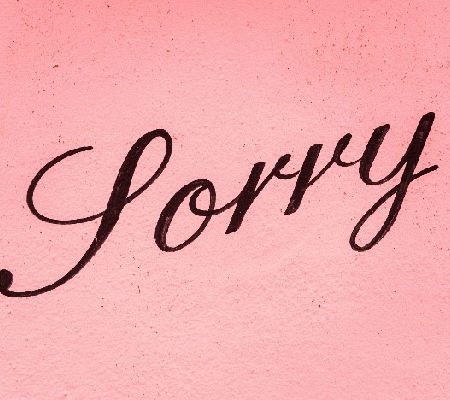The famous women who apologised or didn’t

Apologies are potent. They can repair relations, reinstate dignity, and recognise past injustices. But they can also be weaponised, demanded in disproportionate measure by specific groups—particularly women, who are often socialised to say sorry more than men. On the other hand, not apologising can also look like defiance, strength, or even arrogance.
When Spain’s King Philip II confronted England with the Spanish Armada, Queen Elizabeth I delivered an inspiring speech to her troops at Tilbury, reaffirming her strength, not apologising for any political mistakes. She never quite apologised directly for the scandals surrounding her rule. Her diplomatic finesse and letters of appeasement did a good job of keeping the peace. Her method demonstrated that apologies, when strategically used and selectively practised, can consolidate power rather than erode it.
In the moments before her death, Marie Antoinette did not express regret about her extravagant life or her distance from the suffering people of France. If she showed remorse at all, it was only when she inadvertently stepped on the executioner’s foot. Still, her refusal to accept guilt only bolstered public perception of her as defiant or utterly disconnected. This non-apology did scant to rehabilitate her image, and history remembers her less for contrition than extravagance.
Hillary Clinton’s presidential campaign was full of demands for her to apologise — for her email practices, past policies, and publicly made statements. Although Hilary apologised for using a private email server, critics said her apology was too late or wasn’t heartfelt. Later, Clinton pointed out that men who “negotiate” are “tough guys” doing their jobs, and women in politics are held to a higher standard of contrition. Her case highlights how apologies can be demanded as an exertion of control rather than a proper resolution.
Serena Williams had a controversial confrontation with the umpire in the 2018 U.S. Open final after the latter had penalised her for receiving coaching signals. She never apologised for being frustrated. Instead, she doubled down on calling out the double standards in treating male and female athletes. Some found her reaction justified; others thought she should have been more conciliatory. Her refusal to apologise fuelled an ongoing conversation about gender bias in sports.
In her 2021 interview with Oprah Winfrey, Meghan Markle finally disputed the British press’ accusations against her, including that she made Kate Middleton cry. Instead of apologising, Meghan explained that the opposite had been the case. But her reaction was a moment of proper thought and reclaiming the narrative; women, especially women of colour, are not expected to be the ones to mediate all the time, even if they might have to.
What does the research say?
Women apologise more than men, not because they apologise to third parties more than men (perhaps victims of male entitlement?), but because they determine that saying sorry is a justifiable response to more situations than men generally would.
In a 2010 study conducted by Schumann and Ross, women reported committing more offences than men, but men were equally likely to apologise when they felt they had done something wrong. This indicates that socialisation could significantly influence how and when people should apologise.
Furthermore, a 2019 study from the University of Waterloo revealed that women are often pressured to apologise to preserve social order, while the opposite is true for men, who are taught to present a strong front. What results is a habitual overuse of the apology, which can detract from authority and credibility when issues live on a professional or political scale?
The best of all, where sincere apologies can build trust and reconciliation. But too many apologies — especially when there’s no need to offer one — can convey weakness instead of strength.
Women who do not apologise can embolden others to challenge unjust expectations and lay down their boundaries. Apologetic women, in particular, are also perceived as weak, but those who do not apologise are considered arrogant or defiant. This creates a double bind that makes strategic communication imperative.
Apologies aren’t simply words; they define narratives, relationships and power dynamics. Women have grappled with these processes differently throughout history, from tactical remorse to unapologetic defiance. Understanding the science and social expectations guiding apologising invites us to interrogate when an apology is warranted critically and when refusing to apologise is, in fact, a form of resistance.
Many women in my new book, Conversations with Remarkable Women, now available on Amazon, wouldn’t have dreamed about apologising but would have stood their ground. Check who might have turned the other cheek and issued an apology. Let me know who you think would have done so and why.
Sources:
Schumann K, Ross M. (2010). The emotion of guilt and why women feel it more than men: Gender differences in the threshold for perceiving offensive behaviour. Psychological Science, 21(11), 1649–1655.
University of Waterloo: Waterloo, Ontario. Gendered apologies and social expectations of them.
To learn more about Remarkable Women, read my brand-new book on Amazon or visit andrewsbooks.site
Feel free to email me with your thoughts andrewsbooks@btinternet.com
